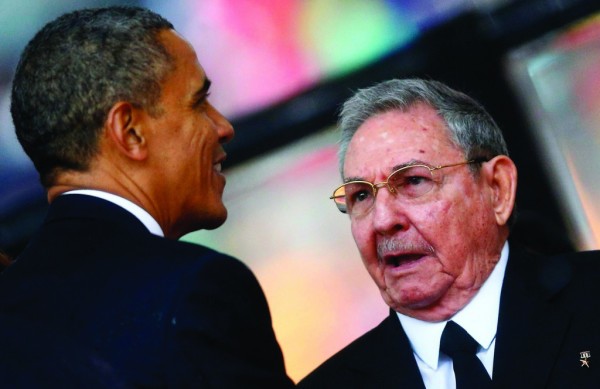
President Barack Obama has announced an historic shift in U.S. relations with Cuba, asking the Congress to end the embargo imposed on the island in 1961.
Obama said today that the current policy “has failed to advance our interests” for decades.
In an historic 15-minute speech from the White House broadcast live on television, Obama announced the beginning of a process to normalize diplomatic relations between the two nations, which were broken in 1961, and which includes opening embassies in Washington and Havana in the coming months.
Yesterday, Obama and Cuban President Raul Castro spoke by telephone to seal the agreement after a negotiation process in which Pope Francis played an important role and which included secret meetings over several months involving delegations of both countries, held mainly in Canada.
“Isolation does not work,” Obama said, adding: “it’s time for a new approach” toward Cuba.
The president also said that “a major obstacle” stood in the way of normalizing relations: the imprisonment in Cuba of USAID sub-contractor Alan Gross, a U.S. citizen, for five years.
Gross was released today by the Cuban government “on humanitarian grounds” and has already returned to the United States, while the three Cuban spies from the so-called “Group of Five” that had been imprisoned in the United States since 1998 also returned to Havana.
The three spies – Gerardo Hernandez, Ramon Labañino and Antonio Guerrero – were released in exchange for a U.S. intelligence official who had been in prison in Cuba for almost 20 years, the White House said.
Obama said that he did not expect the changes he was announcing to cause an overnight transformation in Cuban society.
But he defended his position that a “policy of compromise” with the communist-ruled island can be much more effective in producing real changes than “isolation,” and that trying to bring about the collapse of Cuba does not serve U.S. interests.
Along those lines, he asked Congress starting in January, when it will be fully controlled by the Republicans, to begin a “serious and honest” debate about the unilateral economic embargo Washington imposed on Cuba during John F. Kennedy’s presidency.
The measures announced today by Obama include easing restrictions on travel and trade between the United States and Cuba, as well as making it easier for Cubans to receive remittances from U.S. territory.
Obama also said he had asked Secretary of State John Kerry to review Cuba’s position on the list of countries Washington considers to be sponsors of terrorism.
The U.S. president also confirmed his participation at the Summit of the Americas to be held in Panama in April 2015 and to which Cuba has been invited.
[myad]